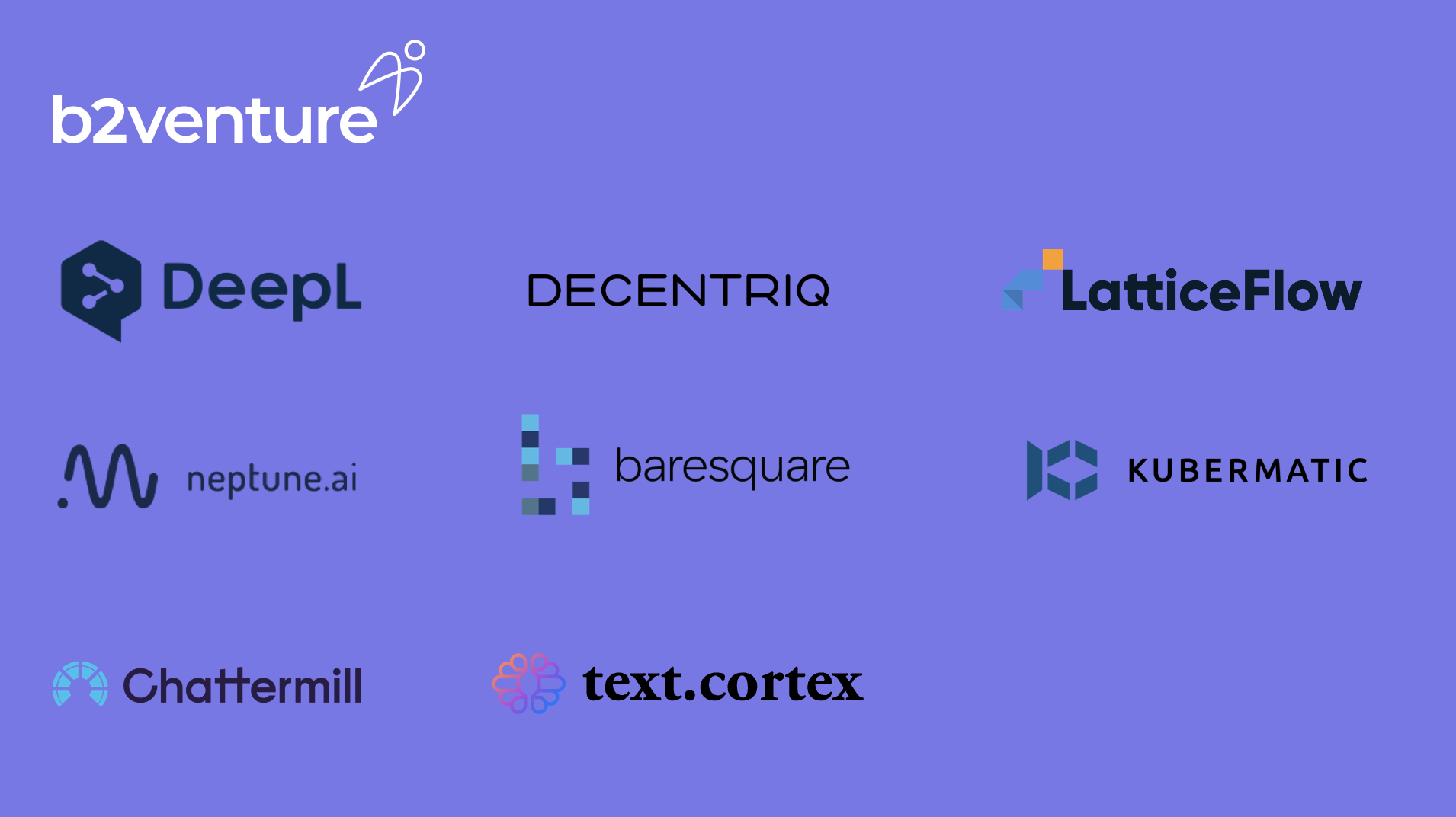How to ESG - A Venture Capital Perspective
How to ESG - A Venture Capital Perspective

There is a growing need to take action on a wide range of environmental, economic and social fronts. Threats including climate change and biodiversity loss, as well as social issues such as income inequality, gender inequality, sexual discrimination and poor working conditions are no longer just the concern of governments and non-governmental organizations but increasingly for the global business community.
Many major corporations and asset managers have made sustainability a central part of their strategies and day-to-day operations. Venture capitalists, limited partners (or LPs who invest in a venture capital fund) and startups also have a particular obligation to meet their social responsibilities as drivers of innovation. New technologies, products, and services can have a large and lasting impact on our efforts to solve the challenges we face. Strategies including environmental, social, and governance factors - in short, ESG – are therefore critical to assessing, measuring, and monitoring the sustainability of new innovations and ensuring that investors reap the performance rewards of sustainable investing.
If venture capitalists, their investors, and portfolio companies aim to achieve the most significant possible impact from their contribution to society, then all of these stakeholders should incorporate ESG principles into their strategy and operations. Some studies show that investors reward companies pursuing these concerns with valuation multiples higher than median performers, and companies with a prominent profile across ESG topics can serve as a magnet for top talent.
Why is ESG important for startups?
ESG is also smart business for startups, and founders should be paying attention to how a company's ESG performance affects its ability to 1.) raise equity and debt capital, 2.) attract talent, 3.) meet B2B and B2C customer expectations and requirements, and 4.) efficiently manage the growing regulatory demands on national and EU levels.
On the regulatory front, the number of issues for startups to manage is growing. The Sustainable Finance Disclosure Regulation (SFDR) implemented by the European Union has elevated the standards for ESG transparency. Investors are now prioritizing compliance with Articles 8 and 9 of the SFDR, which necessitate detailed disclosures regarding financial products that support ESG characteristics or advance sustainable investment objectives.
For portfolio companies, adhering to these classifications is a prudent way to prepare for future reporting requirements and regulatory waves like the Corporate Sustainability Reporting Directive (CSRD), the Carbon Border Adjustment Mechanism (CBAM) and the EU Taxonomy. Early adoption of ESG reporting is a strategic move that can help companies stay ahead of the curve.

Our approach
Even though ESG is no longer "nice to have" but smart business, many venture capital firms are still hesitant to adopt ESG practices. Thus there is an opportunity for venture capital firms to unlock the potential of ESG and differentiate themselves from their peers as more investors and limited partners raise their expectations of VC funds when it comes to ESG integration.
We wanted to take a closer look at how we “do ESG” at b2venture and show how even a relatively small venture capital firm such as ours can get started.
Our practices differentiate between sustainability (ESG) and impact:
- Operational Sustainability is about people, planet and profit and how we manage our internal resources and operational practices.
- External Impact defines the way in which a business model or a product generates long-lasting change, whether positive or negative, for society and the environment.
Operational sustainability refers to ESG practices within b2venture, while external impact concerns the impact made through our investments into startups.
On the operational side, we set up an internal, cross-functional taskforce that is responsible for promoting ESG practices within b2venture and examined and prioritized what we could enact quickly. Here are some concrete examples for each dimension of ESG:
Environment - We achieved carbon neutrality for our firm - since 2020 we have been part of the Leaders for Climate Action, whose resources we use to calculate our overall carbon footprint and buy offsets. To keep our emissions level low, we also adopted a clear travel policy that encourages the team to limit trips to essential travel and use low emission modes of transportation when possible.
Social - We developed a Zero Tolerance Policy or anti-harassment and discrimination policy, which extends to every employee at b2venture and all partners. This policy is also relevant to individuals in our direct investment network, portfolio founders, and our limited partners - for the entire b2venture community. We anticipate that our clients, contractors, service providers, and anyone we come into contact with will adhere to and respect our policy. b2venture firmly disapproves of any form of harassment and discrimination, and any reported incidents will be promptly investigated.
Government - Beyond the ESG taskforce, we have a supervisory board that meets regularly to discuss our operations, management practices, and the regulatory environment. Moreover, we have set company-wide goals in a transparent, collaborative, and measurable way, using the framework of Objectives and Key Results (OKRs). Therefore, we define our company objectives on an annual basis, which are then broken down into key results, each appointed to one Directly Responsible Individual (DRI).
Turning toward our external impact through our investments, here is an overview of the steps we carry out across all of our incoming portfolio companies:
- ESG assessment: we perform a mandatory assessment as part of our Due Diligence and the results inform our portfolio development strategy on ESG-related topics which is tailored to the specific needs and challenges of the individual portfolio company.
- Active board involvement: we strive for active board involvement, accepting board seats wherever possible.
- Sustainability clause: we include a sustainability clause as part of every newly issued term sheet and shareholder agreement in cases where we act as lead or as a substantial co-lead investor. This ESG clause states that each portfolio company shall maintain an ESG policy.
- ESG Knowledge Hub: We have also developed an ESG knowledge hub as well as a specialized hub for governance issues as part of our startup resources that helps founders learn the basics of company governance.
- Principal Adverse Impact Tracking: annual tracking of non-financial metrics (i.e., principal adverse impact indicators, called PAIs) across our portfolio companies using Atlas Metrics.

Atlas Metrics Partnership
Our portfolio company Atlas Metrics has developed the most future-oriented solution for ESG accounting and reporting and has extensive experience working with funds and their portfolio companies.
Atlas Metrics is building a global data infrastructure that is universal in its conception, enabling companies to easily collect, report and exchange any ESG data. Features include a universal ESG standard compiler, collaboration and workflow functionalities to streamline the collection process, and microsites to report ESG indicators in line with regulations. Atlas Metrics also ensures that companies keep the ownership of their data - using Atlas companies can collect and enter their data on Atlas, then share this with investors like us. This allows companies to flexible reuse any collected data, making Atlas Metrics their single source of truth for non-financial data
The company recently announced a major partnership with KfW that will no doubt have a major impact on the venture capital industry in Europe and thus the tech ecosystem. At the heart of the collaboration between KfW Capital and Atlas Metrics is a common approach to create transparency on the sustainability performance of venture funds and companies across the flow of capital, while making ESG reporting as efficient and beneficial as possible for all parties involved. Portfolio companies can use the Atlas platform to exchange data with suppliers, investors, banks, and customers. They can also complete their CSRD journey end-to-end with the help of platform modules for double materiality analysis, carbon accounting, EU taxonomy assessment, auditing, and machine-readable reporting. General partners (GPs) can automatically aggregate and compare company data, engage companies on sustainability-related risks and opportunities, and leverage ESG data for LP reporting and fundraising. Limited Partners (LPs) benefit from powerful data warehouses that allow them to easily compare the performance of investments, and identify sustainability drivers at company, fund, and GP level. Everyone benefits from an intelligent data model, benchmarks, and AI-enabled automation to shift resources from reporting to management.

This is a big step for Atlas Metrics and we are very proud to have been supporting them from the very beginning.

There is a growing need to take action on a wide range of environmental, economic and social fronts. Threats including climate change and biodiversity loss, as well as social issues such as income inequality, gender inequality, sexual discrimination and poor working conditions are no longer just the concern of governments and non-governmental organizations but increasingly for the global business community.
Many major corporations and asset managers have made sustainability a central part of their strategies and day-to-day operations. Venture capitalists, limited partners (or LPs who invest in a venture capital fund) and startups also have a particular obligation to meet their social responsibilities as drivers of innovation. New technologies, products, and services can have a large and lasting impact on our efforts to solve the challenges we face. Strategies including environmental, social, and governance factors - in short, ESG – are therefore critical to assessing, measuring, and monitoring the sustainability of new innovations and ensuring that investors reap the performance rewards of sustainable investing.
If venture capitalists, their investors, and portfolio companies aim to achieve the most significant possible impact from their contribution to society, then all of these stakeholders should incorporate ESG principles into their strategy and operations. Some studies show that investors reward companies pursuing these concerns with valuation multiples higher than median performers, and companies with a prominent profile across ESG topics can serve as a magnet for top talent.
Why is ESG important for startups?
ESG is also smart business for startups, and founders should be paying attention to how a company's ESG performance affects its ability to 1.) raise equity and debt capital, 2.) attract talent, 3.) meet B2B and B2C customer expectations and requirements, and 4.) efficiently manage the growing regulatory demands on national and EU levels.
On the regulatory front, the number of issues for startups to manage is growing. The Sustainable Finance Disclosure Regulation (SFDR) implemented by the European Union has elevated the standards for ESG transparency. Investors are now prioritizing compliance with Articles 8 and 9 of the SFDR, which necessitate detailed disclosures regarding financial products that support ESG characteristics or advance sustainable investment objectives.
For portfolio companies, adhering to these classifications is a prudent way to prepare for future reporting requirements and regulatory waves like the Corporate Sustainability Reporting Directive (CSRD), the Carbon Border Adjustment Mechanism (CBAM) and the EU Taxonomy. Early adoption of ESG reporting is a strategic move that can help companies stay ahead of the curve.

Our approach
Even though ESG is no longer "nice to have" but smart business, many venture capital firms are still hesitant to adopt ESG practices. Thus there is an opportunity for venture capital firms to unlock the potential of ESG and differentiate themselves from their peers as more investors and limited partners raise their expectations of VC funds when it comes to ESG integration.
We wanted to take a closer look at how we “do ESG” at b2venture and show how even a relatively small venture capital firm such as ours can get started.
Our practices differentiate between sustainability (ESG) and impact:
- Operational Sustainability is about people, planet and profit and how we manage our internal resources and operational practices.
- External Impact defines the way in which a business model or a product generates long-lasting change, whether positive or negative, for society and the environment.
Operational sustainability refers to ESG practices within b2venture, while external impact concerns the impact made through our investments into startups.
On the operational side, we set up an internal, cross-functional taskforce that is responsible for promoting ESG practices within b2venture and examined and prioritized what we could enact quickly. Here are some concrete examples for each dimension of ESG:
Environment - We achieved carbon neutrality for our firm - since 2020 we have been part of the Leaders for Climate Action, whose resources we use to calculate our overall carbon footprint and buy offsets. To keep our emissions level low, we also adopted a clear travel policy that encourages the team to limit trips to essential travel and use low emission modes of transportation when possible.
Social - We developed a Zero Tolerance Policy or anti-harassment and discrimination policy, which extends to every employee at b2venture and all partners. This policy is also relevant to individuals in our direct investment network, portfolio founders, and our limited partners - for the entire b2venture community. We anticipate that our clients, contractors, service providers, and anyone we come into contact with will adhere to and respect our policy. b2venture firmly disapproves of any form of harassment and discrimination, and any reported incidents will be promptly investigated.
Government - Beyond the ESG taskforce, we have a supervisory board that meets regularly to discuss our operations, management practices, and the regulatory environment. Moreover, we have set company-wide goals in a transparent, collaborative, and measurable way, using the framework of Objectives and Key Results (OKRs). Therefore, we define our company objectives on an annual basis, which are then broken down into key results, each appointed to one Directly Responsible Individual (DRI).
Turning toward our external impact through our investments, here is an overview of the steps we carry out across all of our incoming portfolio companies:
- ESG assessment: we perform a mandatory assessment as part of our Due Diligence and the results inform our portfolio development strategy on ESG-related topics which is tailored to the specific needs and challenges of the individual portfolio company.
- Active board involvement: we strive for active board involvement, accepting board seats wherever possible.
- Sustainability clause: we include a sustainability clause as part of every newly issued term sheet and shareholder agreement in cases where we act as lead or as a substantial co-lead investor. This ESG clause states that each portfolio company shall maintain an ESG policy.
- ESG Knowledge Hub: We have also developed an ESG knowledge hub as well as a specialized hub for governance issues as part of our startup resources that helps founders learn the basics of company governance.
- Principal Adverse Impact Tracking: annual tracking of non-financial metrics (i.e., principal adverse impact indicators, called PAIs) across our portfolio companies using Atlas Metrics.

Atlas Metrics Partnership
Our portfolio company Atlas Metrics has developed the most future-oriented solution for ESG accounting and reporting and has extensive experience working with funds and their portfolio companies.
Atlas Metrics is building a global data infrastructure that is universal in its conception, enabling companies to easily collect, report and exchange any ESG data. Features include a universal ESG standard compiler, collaboration and workflow functionalities to streamline the collection process, and microsites to report ESG indicators in line with regulations. Atlas Metrics also ensures that companies keep the ownership of their data - using Atlas companies can collect and enter their data on Atlas, then share this with investors like us. This allows companies to flexible reuse any collected data, making Atlas Metrics their single source of truth for non-financial data
The company recently announced a major partnership with KfW that will no doubt have a major impact on the venture capital industry in Europe and thus the tech ecosystem. At the heart of the collaboration between KfW Capital and Atlas Metrics is a common approach to create transparency on the sustainability performance of venture funds and companies across the flow of capital, while making ESG reporting as efficient and beneficial as possible for all parties involved. Portfolio companies can use the Atlas platform to exchange data with suppliers, investors, banks, and customers. They can also complete their CSRD journey end-to-end with the help of platform modules for double materiality analysis, carbon accounting, EU taxonomy assessment, auditing, and machine-readable reporting. General partners (GPs) can automatically aggregate and compare company data, engage companies on sustainability-related risks and opportunities, and leverage ESG data for LP reporting and fundraising. Limited Partners (LPs) benefit from powerful data warehouses that allow them to easily compare the performance of investments, and identify sustainability drivers at company, fund, and GP level. Everyone benefits from an intelligent data model, benchmarks, and AI-enabled automation to shift resources from reporting to management.

This is a big step for Atlas Metrics and we are very proud to have been supporting them from the very beginning.

The Author

Anna Bosch
Principal
Anna is Principal in the b2venture fund team and works with the entire b2venture team and across our portfolio as our in-house expert for all things ESG.
Team






.jpg)












.png)




.jpg)
-min.png)


.jpg)













































.jpg)





















